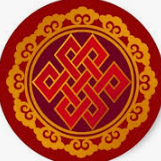THAI chief tenders resignation
-
Recently Browsing 0 members
- No registered users viewing this page.
-
Topics
-
Popular Contributors
-
Latest posts...
-
10
Crime Thai Singer Sek Loso Sentenced to 3 Years Without Parole
From shooting star to fallen star... -
10
-
84
Video Ex-Air Hostess Charlotte Lee Arrested for £1.5m Cannabis in Sri Lanka
A flame has been removed -
-
95
Do you still read books?
Lord of the Rings is mythology. So you don't read books or watch any movies? Just chase skirt all day? -
0
Vietnam's new extendable 10-year Visa - will the expat exodus begin?
Hi everyone, I've just seen this online but all the stories I found are currently a bit light on details, e.g. cost. Looks on initial view similar to the Thai DTV. https://news.tuoitre.vn/vietnams-tourism-body-proposes-10-year-golden-visa-to-attract-global-talent-investors-103250516193404789.htm If this takes off how many of the Thai-based expats will start heading to Vietnam?
-
-
Popular in The Pub
-




.thumb.jpeg.d2d19a66404642fd9ff62d6262fd153e.jpeg)





Recommended Posts
Create an account or sign in to comment
You need to be a member in order to leave a comment
Create an account
Sign up for a new account in our community. It's easy!
Register a new accountSign in
Already have an account? Sign in here.
Sign In Now